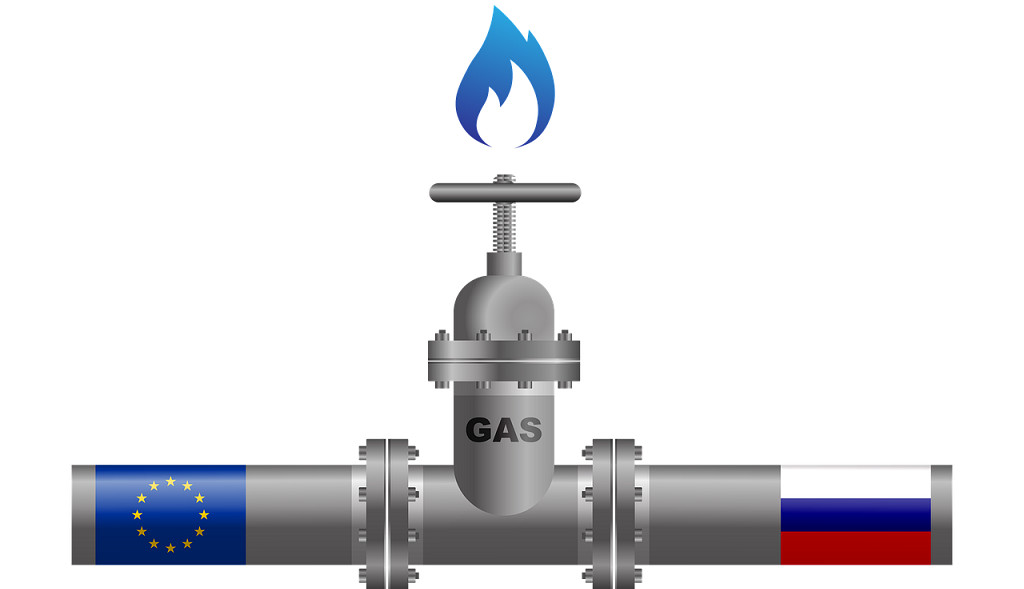
Natural gas futures are rising by 4-5% during Friday's trading. May futures on the index of the largest European hub TTF at the opening of European trading were at $1,480, and later rose sharply to $1,512.7. At one point, quotes stayed in the range around $1,460 to $1,500.
The energy crisis that has been unfolding in Europe for almost the whole of 2021, with the development of Russia's military operation on the territory of Ukraine, has received new reasons for further strengthening. So, to date, the Russian multinational energy company Gazprom is developing a scenario for a complete shutdown of gas supplies to those countries that intend to boycott the energy resources of Russia. These include the entire European Union.
On March 28, Russian President Vladimir Putin instructed the government, the Bank of Russia and Gazprom to take measures to transfer all payments for natural gas with unfriendly countries to rubles by March 31. Judging by the reaction of European leaders to such statements by the Kremlin, Europe is not ready to accept such conditions, or is not ready yet.
The Minister of Economy and Finance of France, Bruno Le Maire, said that contracts with Russia for gas supplies were concluded in euros, so they will be paid in euros only in the future.
German Finance Minister Christian Lindner echoes the French official, stating that Berlin will not make any concessions to Russia. Germany will not give Russia the opportunity to circumvent tough sanctions, which also concern the Russian central bank.
German Chancellor Olaf Scholz said that his country plans to make payments for Russian gas exclusively in euros, since energy supply contracts specify payments in euros, in some cases in US dollars, but not in rubles.
By the way, the German authorities have already warned their citizens that an acute shortage of fuel is brewing in the country. If gas supplies to Germany are significantly disrupted, the German government will be forced to normalize energy consumption in its country. Rationing will primarily affect large industrial consumers. The head of the German Ministry of Economy, Robert Habeck, has already called on all consumers of blue fuel to reduce its consumption as much as possible.
One of the most radical positions in Europe regarding fuel supplies from Russia is occupied by Poland. Polish Prime Minister Mateusz Morawiecki recently announced that by the end of this year his country is going to completely stop importing Russian gas, oil and coal.
It is worth saying that Poland has been working for years to reduce its dependence on Russian energy resources. For example, the United States, Qatar and Norway export liquefied natural gas to the newly expanded terminal in Swinoujscie in northwestern Poland. And at the end of this year, a new gas pipeline will be launched, through which gas will flow to Poland from Norway. Poland also intends, as far as possible at this stage of the development of green energy, to use renewable energy sources.
The decision of European companies not to accept the new terms of partnership of Russia is quite justified, because these conditions run counter to the sanctions imposed against Russia. The Polish newspaper Rzeczposploita writes that Poland must cope with the situation when gas supplies from Russia to Poland suddenly stop in early April, because its gas storage facilities are filled with raw materials by 65%. But you can't envy Germany in this situation, because its warehouses are filled with gas by only 26%.
Germany may consider increased purchases in Norway or the Netherlands as alternative suppliers. The trouble is that they will not be able to completely replace Russian gas, which currently covers all 40% of German demand. The long-term blocking of supplies of natural gas from Russia will primarily affect the German industry.
As we can see, the European Union is not ready to meet the Kremlin's new demands for gas supplies. However, according to Reuters, there was no immediate interruption of gas supplies from Russia on Friday. Flows are still stable through the main pipelines that deliver blue fuel to Europe, namely the Nord Stream -1 through the Baltic Sea and the pipeline to Slovakia through Ukraine.
 English
English 
 Русский
Русский Bahasa Indonesia
Bahasa Indonesia Bahasa Malay
Bahasa Malay ไทย
ไทย Español
Español Deutsch
Deutsch Български
Български Français
Français Tiếng Việt
Tiếng Việt 中文
中文 বাংলা
বাংলা हिन्दी
हिन्दी Čeština
Čeština Українська
Українська Română
Română

